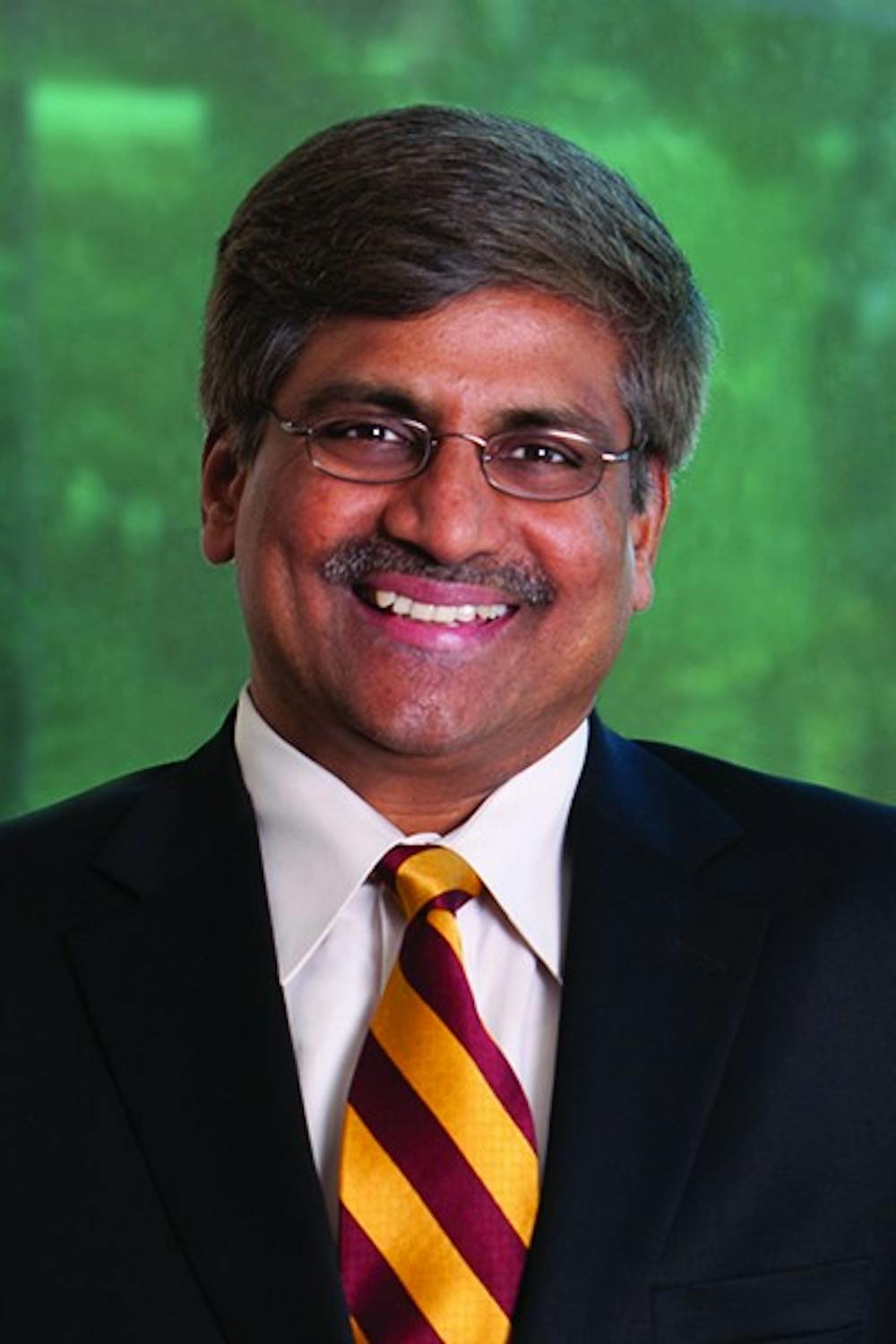 Sethuraman “Panch” Panchanathan, the senior vice president of the Office of Knowledge and Enterprise Development, said the organization is indicative of the potential ASU has as a contender for building innovative technologies in the future. (Photo Courtesy of Dan Vermillion)
Sethuraman “Panch” Panchanathan, the senior vice president of the Office of Knowledge and Enterprise Development, said the organization is indicative of the potential ASU has as a contender for building innovative technologies in the future. (Photo Courtesy of Dan Vermillion)A recent report ranked ASU 33rd among international colleges for the number of patents it issued during 2012. The University was ranked fourth among U.S. universities without a medical school.
The study, which was completed by the National Academy of Inventors and the Intellectual Property Owners Association, reflects the University’s recent push toward research development and innovation. In total, 43 patents were awarded to ASU in 2012.
Stuart Lindsay, physics professor and holder of 29 patents, said he attributes much of ASU’s entrepreneurial success to President Michael Crow’s vision for the University.
“There’s been a culture shift," he said. "Crow wants the practical outcome of research to make ASU the next Silicon Valley. Get technologies out there that will get companies started, which will then donate to research funding at ASU.”
In recent years, the University made substantial progress in innovative technologies while emphasizing the economic impact of each project. For example, school researchers opened 11 startup companies in 2013 alone.
Calling it a “culture of impact,” Lindsay said he believes these successes demonstrate ASU’s potential in creating viable patents that affect the state of Arizona and beyond.
“The faculty is working a lot harder than they have in recent years," he said. "I don’t know of any university that has worked as hard on this."
Biomedicine and biotechnology professor Wayne Frasch is familiar with patent-issuing and holds multiple patents for his work.
He and his team study protein complexes that provide energy for cellular processes in the body. In the last two years, he received more patents than any other individual at ASU and said he knows firsthand the difficulties associated with issuing patents.
“It’s very time-consuming and very expensive," he said. "There’s a lot of work involved, and then you wait. And then you do more work and wait some more."
Patent examiners decide if an individual’s idea has commercial potential to create future profit. If it has market value, an attorney translates the idea into legal writing. Both the patent examiner and attorney will modify specific parts of the patent until the two parties are satisfied.
Despite the lengthy nature of patent-issuing, Frasch credits the process with creating positive repercussions for the University and brightening future employment prospects for alumni.
“The point is not that ASU will make a lot of money," Frasch said. "The point is that other companies will start up and hire Arizonians in high-salary kinds of jobs."
To enrich research programs further, ASU introduced the Office of Knowledge and Enterprise Development in spring 2010. Today, it supports faculty and students with their endeavors in all fields of study.
Sethuraman “Panch” Panchanathan, the senior vice president of OKED, holds four U.S. patents related to multimedia technologies. He said the organization is indicative of the potential ASU has as a contender for building innovative technologies in the future.
“OKED is a model enterprise in the country," he said. "We are focused on a mission of economic impact as an objective to completing research. It is very effective and efficient in terms of taking technology from the University and ensuring the patents are valuable in the marketplace."
The Arizona Board of Regents recently announced a plan that doubles research grant funding from $1 billion to $2 billion per year for Arizona’s three major universities by 2020.
ASU hopes to increase its research budget by $400 million within the next six years. ASU will have significantly more freedom to build new facilities and foster partnerships with local groups interested in the latest technologies if the bill passes the Legislature.
Reach the reporter at shari.rose@asu.edu or follow her on Twitter @sharir55




